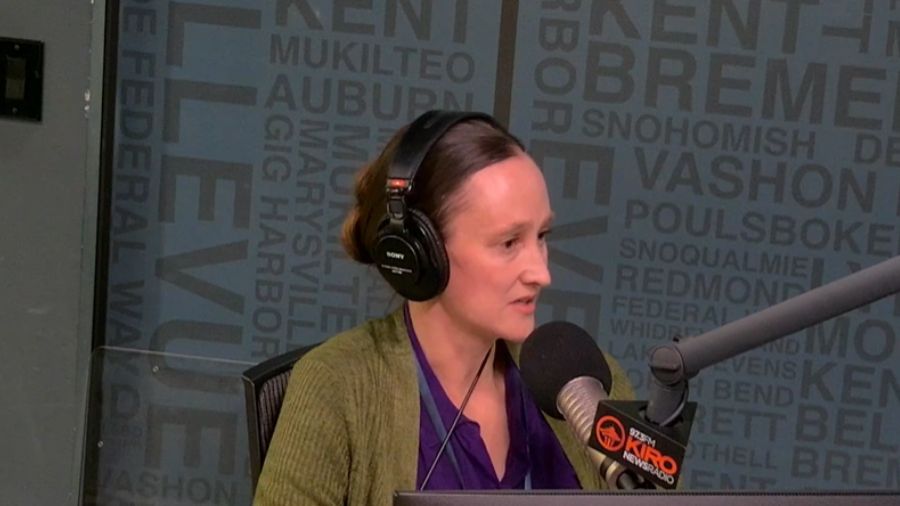Harger: The plastic bag ban has backfired in Washington, study finds
Oct 2, 2025, 6:50 AM | Updated: Oct 3, 2025, 1:27 pm
Washington’s plastic bag ban is making things worse. The state’s own study says we should drop it.
That’s right. Drop the ban. The new Washington State University (WSU) report is clear. Bring back thin plastic bags. Charge a small fee, but end the ban.
Why? We’re using more plastic by weight. Creating more emissions. Paying eight cents for bags that used to be free. Next year, 12 cents.
Those thicker, “reusable” plastic bags only beat the thin ones if you reuse them multiple times; most people don’t. Most people I know use them once. I use them maybe twice, if you count my Great Dane Juno’s contribution.
How many people do you see at the grocery store reusing the thick bags at checkout?
I know what you’re thinking. “But Charlie, I bring a cloth bag all the time.” Good for you, but you’re the exception.
California has had this ban since 2016. Researchers watched shoppers. At a regular grocery store? Only 24% brought reusable bags. The rest bought new ones. Even at Whole Foods and Trader Joe’s, the eco-conscious stores, only about half of the customers brought their own bags.
Half. At the stores where people care most about this stuff. And in California.
The plastic bag ban is simply not working
So yes, some people are great about this. But most aren’t, and policies have to work for most people, not just the dedicated few.
By one estimate, before the ban, our annual pile of grocery bags would fill a single football field about 22 feet high. That’s it. Every bag. Every store. The whole state. Now with thick bags? That same single football field is 38 feet high. We nearly doubled it.
And Washington is big enough for more than 34 million football fields.
We’re going through all this hassle for one football field of plastic. And our solution made it worse.
State law is scheduled to push the minimum thickness to 4 mil. The study says don’t: Thicker means more plastic, more trucks, more pollution.
But here’s what gets me. The state agencies commissioned this study, got the results, and then attacked their own report. The agencies essentially stated that the data was too thin. The researcher shot back that they trashed it without offering any proof.
The Commerce and Ecology Departments got the science. They didn’t like it.
The researchers say bring back thin bags, charge a smaller fee, and skip the ban. That works.
Nobody’s against clean water and clean air. Nobody wants plastic in the ocean. My kids live here too, but this policy isn’t delivering that. It’s delivering the opposite. If you won’t listen to your own science, why commission it?
Follow the science was the rule. Until the science said they were wrong. Now it’s follow the science, asterisk, unless it contradicts our goals.
And that’s the commentary for Oct. 2. You can always weigh in. Shoot us a note on the text line (888) 973-5476 or leave a comment on MyNorthwest.
Charlie Harger is the host of “Seattle’s Morning News” on KIRO Newsradio. You can read more of his stories and commentaries here. Follow Charlie on X and email him here.















